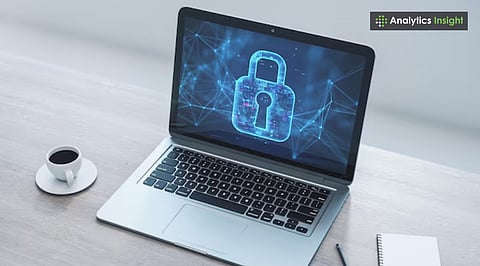

Strong passwords, encryption, and updates are essential to protect your laptop from hackers.
Physical safety matters just as much as digital security for laptops.
Following smart laptop security tips helps safeguard both your data and your device.
A laptop often contains sensitive information such as emails, financial data, and personal files. It is crucial to protect this data from online threats and theft. If a laptop falls into the wrong hands, your private information could be at risk.
Several measures can be taken to ensure that user data remains secure during transfers and everyday use. Let's explore these strategies and steps users need to take to enhance their laptops' security.
Laptops are like a digital notebook filled with personal and professional data. Cybersecurity reports show that every 53 seconds, a laptop is stolen worldwide, and more than 70% of data violations happen due to a device’s weak security. Loss of hardware information can result in losing years of files, passwords, and personal information.
A strong password is the first line of defense to protect any laptop. Users should avoid easily guessed options such as ‘123456’ or their birthday. Instead, it should be at least 12 characters long and include a combination of numbers, symbols, and capital letters, with lowercase letters.
Users should also allow two-factor authentication (2FA). This adds a second security step, such as a code sent to the phone, which helps protect a laptop from hackers.
Software updates are decisive for security. It is essential to update a laptop’s operating system to determine the safety gaps that hackers can use. It is recommended to enable automatic updates and upgrade all applications, browsers, and antivirus software to ensure optimal security and performance. Old programs that are no longer used should be removed, as they can be weak points for attackers.
Installing antivirus software is an effective way to improve your laptop security. This software finds and removes malicious programs before they can cause any damage. A laptop's built-in firewall also helps block range access to the network. While free antivirus tools offer basic protection, paid versions often provide stronger real-time monitoring.
Also Read: How to Secure Your Google Account from Potential Hacks?
Data protection includes more than just antivirus software. People can encrypt their hard drives, making files unreadable without a key. It is also wise to regularly back up important documents to a secure cloud service or an external unit.
Finally, one should avoid connecting to a public Wi-Fi without a virtual private network (VPN) because a VPN hides online activity from others on the same network.
Maintaining a laptop's physical safety is as important as digital security. Users should use a laptop lock in public places such as cafes or libraries. The device should never be left unattended, even for a moment. A tracking tool such as ‘Find My Device’ can be an effective solution if a laptop is lost or stolen.
Daily habits can significantly impact security. Always log out of accounts after use. Be cautious when downloading files from unknown links or emails. Regularly cleaning the cache and browser cookies is also a good security procedure. Sensitive files should be stored in secure, encrypted folders instead of desktops.
Securing a laptop is not too complex. Developing careful habits can protect valuable data and privacy, offering peace of mind in our interconnected world. These measures will help keep information hidden from malicious hackers and viruses. Users should explore all available security options to optimize their data protection.
